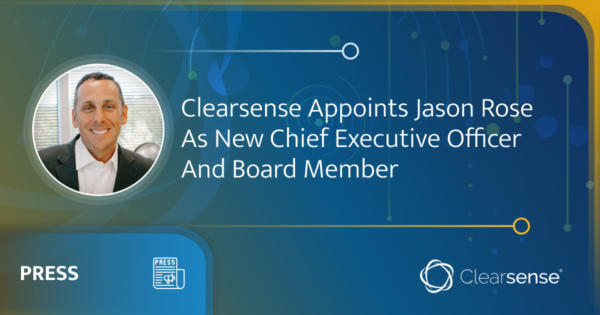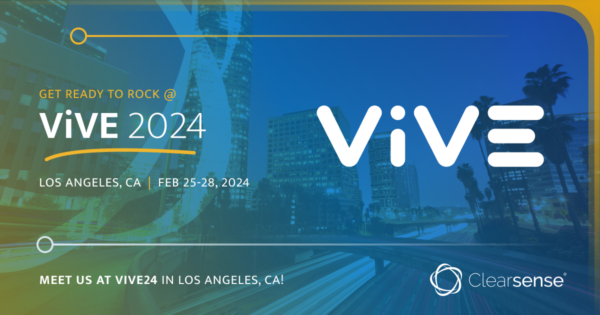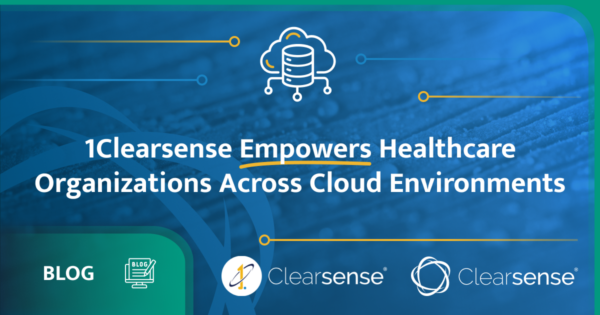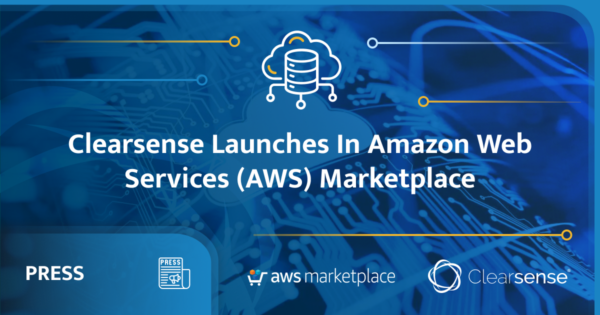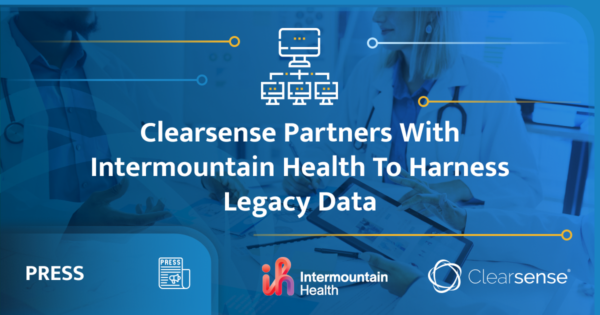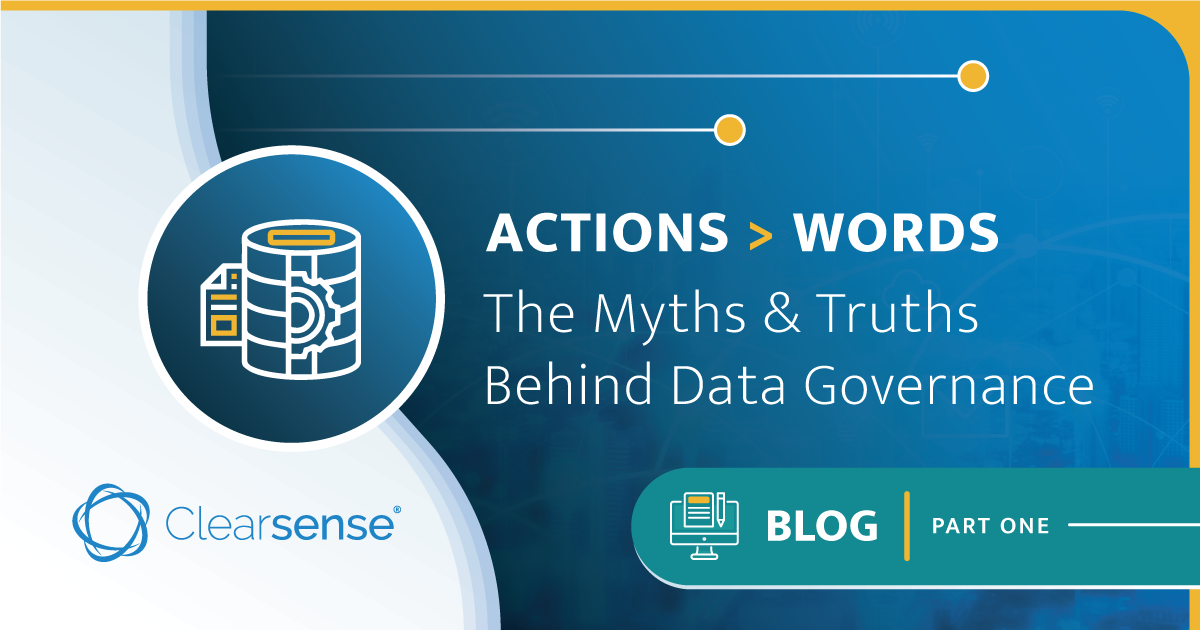
Actions > Words
We all agree data is a strategic asset. Yet, when we take a critical look at how organizations are managing their data the question lingers, “Are you really managing your data as a strategic asset?”
Why the hurdle from belief to putting into practice? Asset management is something we have been doing for decades!

Data Governance in Healthcare: Myth Busters Edition, Part 1 of 2
At Clearsense, I believe in one core truth: Working towards better data should be part of everyone’s job. And luckily, the path forward is not uncharted. When an asset becomes critical to a business:
- Formal processes and policies emerge
- Technology is implemented to scale operations
- New enterprise capabilities are available for use
- Business units evolve to maintain the quality, efficient use of and value the assets bring to the organization and, ultimately, consumers
Let’s bust some myths to help transition you to a world where “better data is everyone’s job!”
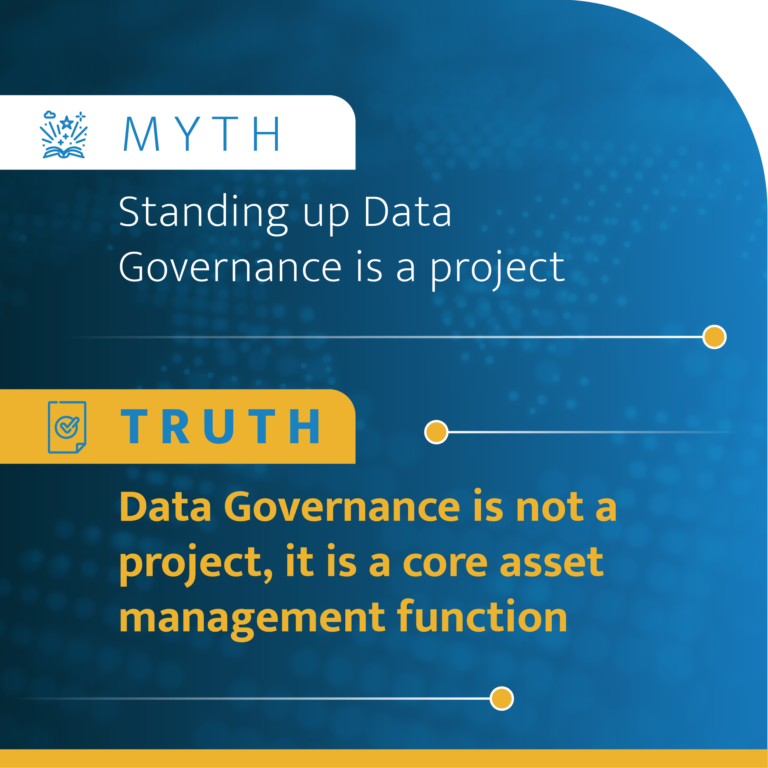
Recommended Content
Misperception #1: Standing up Data Governance is a project.
Truth: Data Governance is not a project. It is a core asset management function.
The assets are data and analytics solutions. People, processes, policies, and technology are required to operate and implement asset management capabilities at scale.
Data Governance is asset management capabilities for data:
- we create inventories of our data assets (metadata),
- we have processes to find and fix data errors (data quality),
- we provide training and guidelines on how to properly use and manage data (data processes and policies),
- we assign asset management decision rights and responsibilities to individuals (data stewardship), and finally
- we work to provide a consistent set of assets across the organization to improve efficiency (master and reference data).
These capabilities are required to make it easier for everyone to work with healthcare data and enable your workforce to spend more time analyzing data for insights instead of curating and cleaning data.
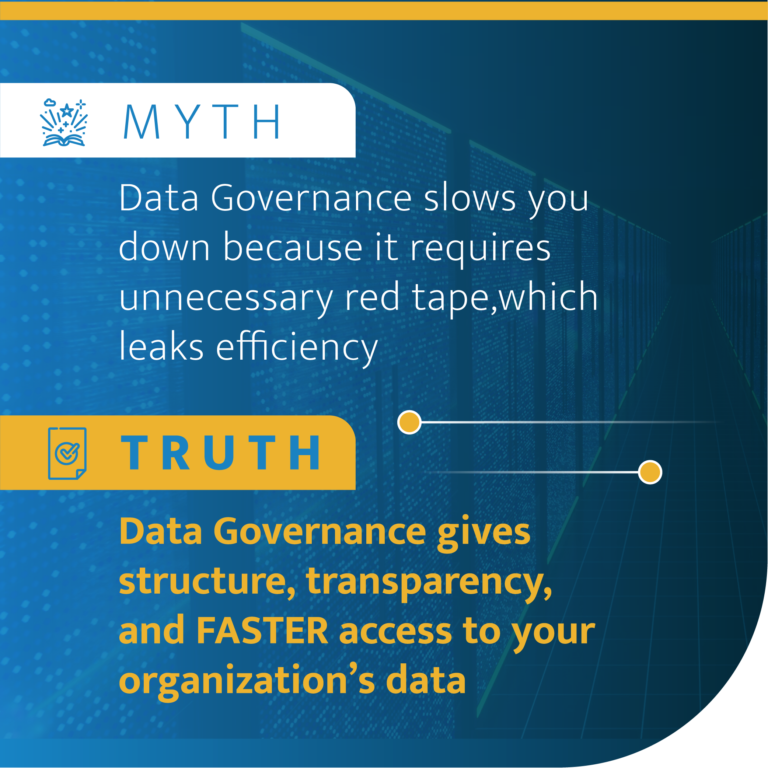
Misperception #2: Data Governance slows you down because it requires unnecessary red tape. You can't access the data you need anymore.
Truth: Data Governance gives structure, transparency, and FASTER access to your organization’s data.
Formalizing your current “phone-a-friend” network by appointing data stewards and training them to have enterprise expertise regarding specific data assets will get you to the right “friend” and the accurate data faster.
When these data stewards begin to publish their data knowledge, your need to “know someone” to gain access to data or to figure out what the data means will diminish over time. Data liberation and role-based security will become the norm. Regulated data will be clearly identified and defined in a common, easy-to-understand language. The definition of business-sensitive data and the processes to gain access to sensitive data will be standardized across analytics teams by a formal council of leaders representing all relevant business units. Approved definitions and calculations for common metrics will be available in a searchable enterprise glossary.
This is what I call true self-service analytics – reducing the dependency on “phone a friend” and “knowing an expert” – providing access to well-defined data, to the right people, at the right time.
Part 2 is Now Available - Click Here to Keep Reading
When you are ready to jump in or jump back in again, please reach out to Clearsense. We are the right partner and the proud sponsors of many successful, fully operational, Data Governance Programs.







